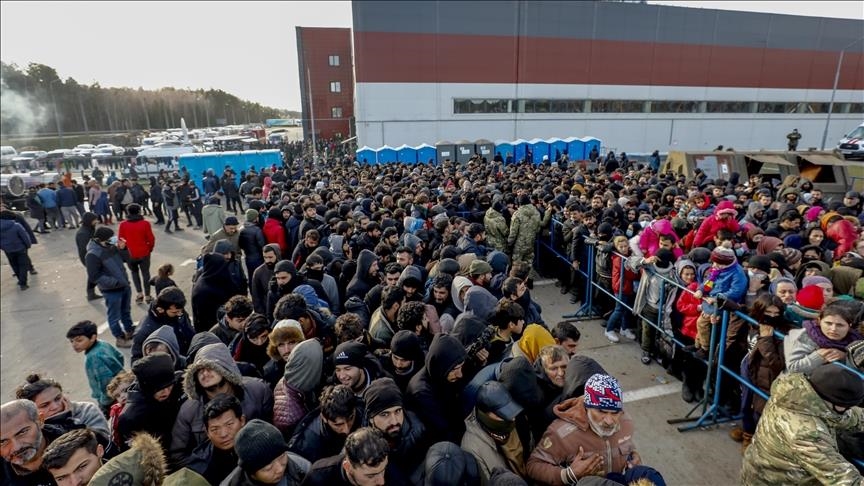EU says in talks with Belarus to solve migrant crisis
EU diplomats holding technical talks with Belarus' Foreign Ministry on humanitarian aid, repatriation of migrants, says spokesman

BRUSSELS
EU officials are holding technical talks with Belarus to solve the migration crisis along its borders, an EU official told a daily news briefing Monday.
“We have been actually in touch with a number of Belarusian interlocutors, including the Foreign Ministry in different levels,” Peter Stano, the European Commission’s chief spokesperson on foreign policy, said when asked about Belarusian President Alexander Lukashenko’s claims that he had reached out to the EU in vain.
Contrary to Lukashenko’s remarks, the European External Action Service (EEAS) has been in touch at various levels with their counterparts at Belarus’ Foreign Ministry, said Stano.
“We are looking into the possibility of holding technical talks with UN agencies and Belarusian counterparts at the technical and expert level in order to see how we can assist in their efforts to facilitate the repatriation of people stuck on Belarus back to safety,” he said.
Stano also confirmed that EU foreign policy chief Josep Borrell had two phone calls over the last seven days with Belarus’ Foreign Minister Vladimir Makei, while other EEAS officials also held technical talks “with their counterparts of lower level” in Belarus’ Foreign Ministry.
“The most recent discussion took place on Friday about the necessary logistics,” he added.
Hybrid attack
Belarusian authorities announced on Thursday that they had moved migrants from the border with Poland to a nearby warehouse turned into a processing center.
On the same day, the first repatriation flights to Iraq took off with hundreds of people on board.
Over 2,000 people, including women and children, spent a week in the Belarusian-Polish border area in dire conditions.
The EU accuses Lukashenko of seeking retribution for EU sanctions on his regime by inviting “tourists” from countries that are the main sources of migration to the bloc and then herding them towards the borders of EU countries, in particular Poland.
In parallel to the talks with the Belarusian government, Borrell and European Commission Vice President Margaritis Schinas traveled to countries of origin and transit to raise authorities’ awareness of Belarus’ dangerous tactics and to stop the flights to Belarus.
Schinas last week visited Turkey, which the EU has praised for taking action to stop would-be migrants from taking flights to Belarus.
EU countries bordering Belarus – Lithuania, Latvia, and Poland – have been reporting a dramatically growing number of irregular crossings since August.
Over 8,000 people tried to enter the bloc via the Belarus-EU border so far this year, up sharply from just 150 last year.
NATO and the EU consider Belarus’ approach towards migrants as a hybrid attack meant to destabilize and undermine security in European countries through non-military means.








